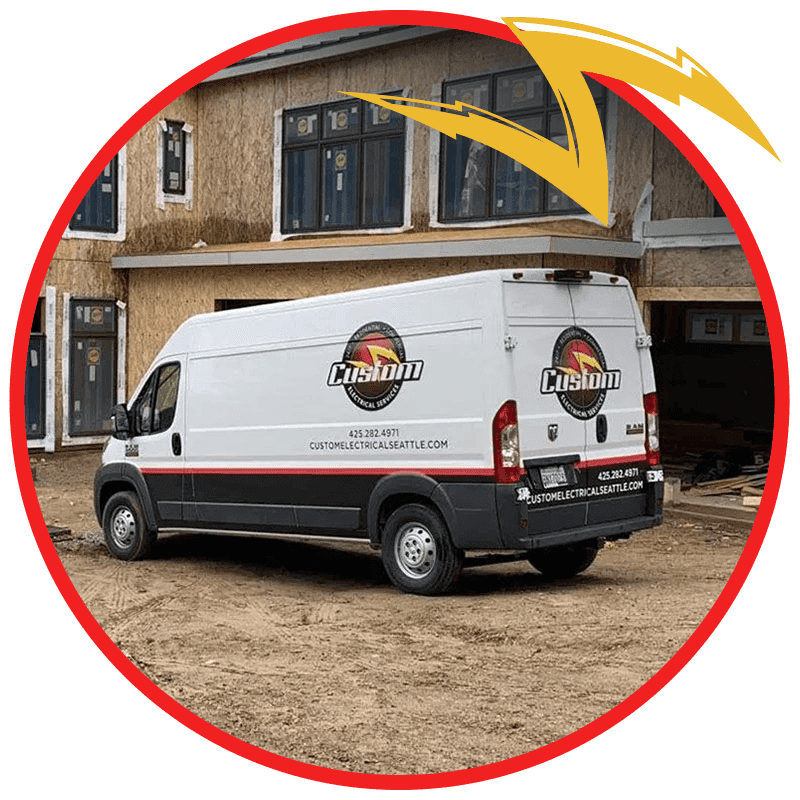A circuit breaker is a safety switch that shuts off power to a part of your home when the electrical panel is overloaded. A typical home or any building with a power supply features many breakers, all housed in a circuit breaker panel, otherwise called a circuit breaker box.
Circuit breaker panels are the brains of the electrical systems in homes. However, it’s quite unfortunate that most homeowners don’t know the basics about circuit breakers, not to mention what an electric panel looks like, Understanding your breaker box and how circuit breakers work would save you money on repairs and come in handy in emergencies. Hence, we’ve prepared a detailed guide regarding relevant things you should know about your home’s main service panel.
What Is an Electrical Panel?
An electrical panel is a system linking the external cables from the street to the internal cables that make up your home’s electrical system. Meanwhile, your electrical panel box is that mysterious grey metal box located in a remote part of your property. The panel features a main breaker that controls the power supply to the entire building. You’ll also find several individual breakers, each responsible for supplying power to a specific home part.
Interestingly, each breaker usually has a toggle switch and a label identifying the area it serves; breaker trips occur when too much power passes through them – that’s their function. However, some older homes have fuse boxes in place of breaker boxes. If your home features a fuse box, expect to find screw-in fuses instead of toggle switches when you open the panel door.
How Do I Locate My Circuit Breaker Panel?
A breaker panel is a metal box, typically grey, and embedded in a wall. You’ll mostly find your breaker box in an out-of-the-way area of your home; somewhere like the basement, laundry room, garage, and storage room are typically places you’ll find one. The most common area to find these panels in apartments is inside the unit, near the entrance, or behind the bathroom door. Though most homes have one electrical panel, others may feature sub-panels, especially properties with multiple living units.
How Do Circuit Breakers and Electrical Panels Work?
Circuit breakers are safety devices designed to trip when the electrical circuit is overloaded. This action helps prevent damage to electrical appliances and, most importantly, your home. If an overloaded breaker doesn’t trip and shut off power, it could start a fire or electrocute someone. Each breaker controls a circuit, and each circuit corresponds to an area of the house.
If the electric load on a breaker grows beyond its design load, it trips off. So, plugging too many devices into a particular circuit can cause a breaker trip. However, breakers come in different sizes, depending on the amount of electricity they need to handle. Meanwhile, breakers have voltage ratings, and single pole breakers providing 120 volts are excellent choices for lights and other appliances that consume less power. Perhaps you flicked your light switch, and nothing happens; you know the breaker type to check.
How Often Should I Have My Electric Panel Inspected?
The essence of carrying out an electric panel inspection is to ensure its proper operation and to certify its safety. Remember, your electrical system is the most dangerous of all home systems. A minor problem with your breaker panel can develop into something significant, causing fire, injury, property destruction, and even death. But you can prevent casualties by hiring a licensed electrician for a thorough electric panel inspection. Your electrician would check for loose connections, heating within the panel, and other faults that may threaten your safety. Perhaps you live in an old house; upgrading your electric system would be excellent.
What Are the Signs Indicating I Need an Electrical System Inspection?
- Frequent tripping of circuit breakers
- Fuses blowing
- Malfunctioning power outlets and switches
- Lights flickering when a big appliance is on
- Warm power outlets
- Electric shocks
Remember, electrical installations and inspections require professionalism. DIY electrical works are risky. Contact an expert electrician for all your electrical needs, even minor tasks like installing a ground fault circuit interrupter.
How Much for an Electric Panel Upgrade?
An electrical panel’s upgrade cost significantly depends on the work details. However, an upgrade price roughly sits between $1,800 to $2,500 for a 100-amp service. But most homeowners are looking to upgrade from 100-amp to 200-amp, costing between $3,500 and $5,000. An excellent way to determine the project cost is to obtain quotes from various electricians – at least three. Quote comparison will help you understand the price range of the service you require and how to negotiate.
What’s the Life Expectancy of a Breaker Panel?
Most homeowners expect their breaker boxes to last as long as the house; that’s why many hardly check on their main service panels. Anything can go wrong with installations, whether electrical or not. The life expectancy of your panel mainly depends on how conscious you’re about your breaker box.
If you schedule periodic maintenance and are wary of overloading circuits, you’ll enjoy your panel for an extended period. Electrical panels can last for as long as 20 to 30 years, while some last longer, up to 50 years if maintained appropriately. However, you may need to upgrade your home’s perfectly functioning electrical panel if you’re planning to install high-energy-consuming fixtures like a hot tub or pool.
Don’t Compromise on Electrical Safety. Let Custom Electrical Services Help You
Electricity is dangerous and can cause significant damage if wrongly handled. Don’t risk your life and property over a few hundred dollars. Let Custom Electrical Services help you with your electrical needs. We provide high-class residential and commercial electrical services at affordable rates. Our expert electrician’s team at Custom Electrical Services pride itself on impeccable workmanship and punctuality, and our past clients testify to our service quality. Call us today at (206) 558-0440 to schedule an appointment.
